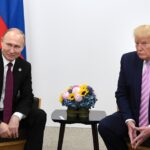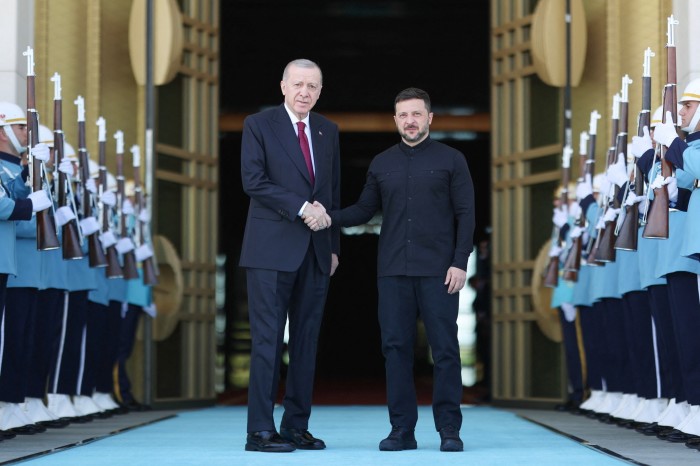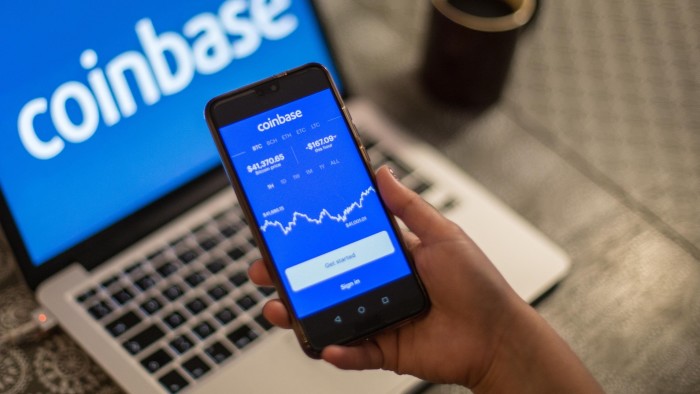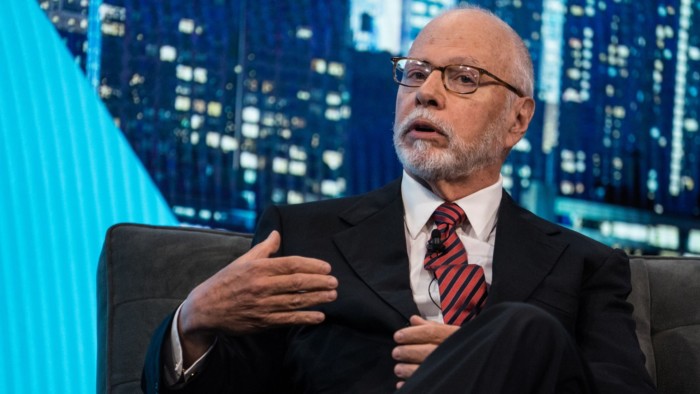How Zara’s unorthodox Russian exit left it primed for a return
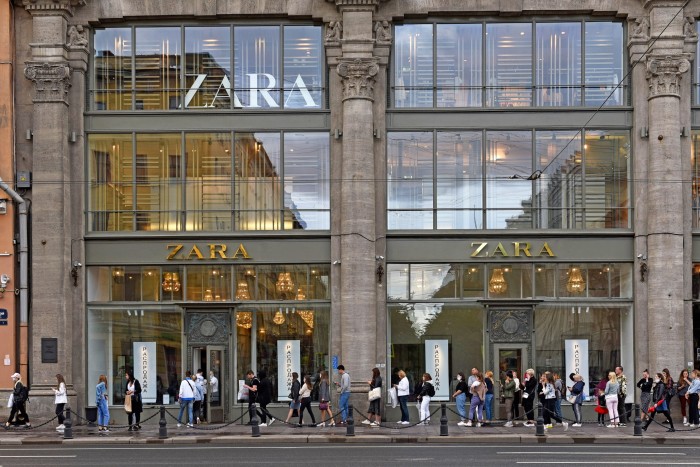
Within days of Vladimir Putin’s 2022 full-blown invasion of Ukraine, Zara owner Inditex announced “the termination” of its Russian operations in what appeared to be a clean break from its largest market by stores outside Spain.
But the details of its exit have left the world’s biggest fashion group — whose Bershka, Pull & Bear and Stradivarius brands also had a presence in the country — well placed should it choose to return.
In early 2023 Inditex injected cash into its Russian business, now called New Fashion, just before selling it for a “not significant” sum to members of a Lebanese family that runs the Spanish group’s franchise in the Middle East, according to corporate filings and company statements.
Replacement brands set up by the buyer are selling near-identical products to Inditex while relying on the same suppliers and employing its former staff, a Financial Times investigation has found. And under the terms of the deal, Inditex has the right “immediately” and at no cost to convert the deal into a franchise arrangement under which its own brands would return to its former Russian stores.
“This appears to be a similar playbook to other ‘boomerang’ withdrawals . . . or exits where the groundwork to return when palatable is laid,” said Kristian Lasslett, a professor at Ulster University who has studied western companies’ departures from Russia.
Inditex told the FT it neither participated in its former Russian business nor supported it in any way, and that “the purpose of the transaction was to sell our business . . . while retaining our option to re-enter the market through a franchise agreement”.
Inditex was part of the first wave of western companies to stop doing business in Russia following the February 2022 full-blown invasion of Ukraine, suspending operations in the country nine days after the assault was launched.
Eight months later it said it would sell the business for an undisclosed amount to “the Daher Group”, in an announcement that revealed few further details about the transaction.
While no entity called the Daher Group exists, Inditex told the FT it had used the phrase to indicate that the buyer was “part of the group of investment companies belonging to the Daher family” — whose Azadea Group holds the Inditex franchise in the Middle East.
The Daher-controlled entity that now owns the Russia operations — a company called Mixed R DMCC whose website promises “continuity of an exceptional fashion journey” — was incorporated in September 2022. Soon afterwards it created new brands that now occupy many of the 243 Russian stores included in the deal. Former Zara, Pull & Bear, Bershka and Stradivarius shops are now respectively branded Maag, Dub, Ecru and Vilet.
The new owner depends on some of the same companies as the Spanish group to source its products, according to trade data that shows three of Inditex’s main suppliers were also the top suppliers for R Mixed, a subsidiary of Mixed R, in 2023 and 2024.
Inditex said it was normal practice in the industry for different retailers to use the same suppliers and that it “actively ensures the total exclusivity for all products sold by its brands”.
However, many of the new Russian brands’ designs bear a strong resemblance to products from Zara and other Inditex brands, images from the companies’ online stores show. Inditex said it would not comment on other brands’ designs.

Mixed R insisted it had no ties to Azadea and that its “creative design and buying functions are handled by an independent team in Dubai”. It said Azadea and Mixed R DMCC “are totally independent entities, with different shareholdings and without any kind of connected business”.
Corporate records show Mixed R is co-owned by Hassan Ghaleb Daher and Mohamed Ali Ghaleb Daher, two of the four brothers who co-own Azadea.
Beyond the items’ resemblance, Maag’s first social media campaign for the launch of its spring/summer 2023 collection was shot at the same location as a Zara collection around the same time. Both were filmed in Lanzarote by the same Spanish production company, according to the brands’ Instagram posts. Inditex said Lanzarote “is a common and frequent destination for fashion industry image productions”.
In December 2022, two months after the deal was announced, Inditex wrote off a Rbs9.1bn loan plus interest, then worth about €120mn, to its Russian business, according to corporate filings that show it then injected a total of Rbs5.7bn, more than €65mn at the time, into the company over the subsequent four months — before the deal closed.
Nataliia Rybalko, a researcher at the Kyiv School of Economics who has studied multinational exits from Russia, said she could think of no other examples of a western company putting money into the Russian business it was selling.
“On the contrary, when leaving Russia, companies withdraw as much money as possible before the sale,” she said.
Paul Ostling, former global chief operating officer at EY who has previously served as audit committee chair for a number of listed Russian companies, said that it was “common sense, operationally” that “you do not normally invest in an asset you are disposing”.
He noted that New Fashion’s 2023 financial statements showed Inditex had classified the asset as non-current, as it was being held for sale when the money was being injected. “So the question is, why put cash into an asset that is non-current and held for sale?”
Inditex said the business had significant operating costs but no sales, that obligations to “employees, local authorities, landlords etc . . . needed to be fulfilled, even though the company was for sale”, and that injecting capital into the business was consistent with such a situation.
Between the Russian business’s March 2022 closure and April 2023 sale, it received more than 800 shipments of apparel from its Middle Eastern prospective buyer, according to trade data.
Inditex said it had agreed with the Dahers that New Fashion would import merchandise before the sale was finalised “to facilitate the prompt opening of the buyer’s operations in Russia”.
While Inditex and R-Mixed declined to disclose the terms of the sale or how much money, if any, changed hands, the Spanish group in January 2023 calculated that the Russian business had a “realisable value” of €183mn.
Asked about the proceeds of the sale, Inditex pointed to the €231mn cost of terminating its Russia business and said “the revenue generated from the sale was not significant”.

People familiar with western retailers’ operations in Russia noted that Inditex’s arrangement with the Dahers was unusual in not containing a traditional buyback agreement, which typically allow companies to repurchase sold entities within a certain timeframe — and at a certain price.
Instead, the so-called Daher group is “obliged” to “immediately” arrange a franchise agreement for Inditex in Russia with the transferred stores should market circumstances change, according to disclosed terms of the deal.
Dozens of Inditex employees — including designers, brand directors and buyers — relocated to the UAE to work for the so-called Daher group on the new business, according to people familiar with the arrangement.
Nine Inditex staff moved in 2022 before the deal closed, according to their LinkedIn pages, with the rest doing so afterwards, joining several Inditex alumni already employed by the UAE company. One person, who was hired by R Mixed from Inditex as head of shoes in March 2023, rejoined the Spanish group last month, according to LinkedIn.
Inditex said it had provided more than 800 voluntary leaves of absence in 2024, a figure in line with the average of previous years, noting that under Spanish labour law such status is not bestowed by the employer but is “a worker’s right that employers must grant”.
At least one of the Dubai-based holding company’s employees remains on Inditex’s staff while on leave of absence, according to people familiar with the structure of the Inditex-Daher arrangement.
The previously unreported details of Inditex’s sale of its Russia business suggest the Spanish group is better positioned than most western retailers to re-enter the Russian market.
Russian media outlets reported this year that Inditex could soon be returning to the market, amid a broader rapprochement between Moscow and the US, although people working with western companies in Russia dismissed such reports as premature. Inditex declined to comment on what it described as “misleading rumours”.
“This seems to be part of a pattern I have observed in some other cases where companies have left Russia and the assets have been put in the name of these carefully curated holding companies in the UAE, where it’s virtually impossible to find information and they are therefore impossible to scrutinise,” said Lasslett.
“Russia was a hugely profitable market for some of these western companies such as Inditex . . . set-ups of these sort raise the question of how much was a genuine withdrawal and how much is a holding position until they can return.”
Inditex said that its financial statements “reliably, accurately and precisely detail the explanation of the transaction”. It added that it did “not comment on opinions, understandings or conclusions that are not based on informed and accurate analysis”.
Additional reporting by Chloe Cornish in Dubai


